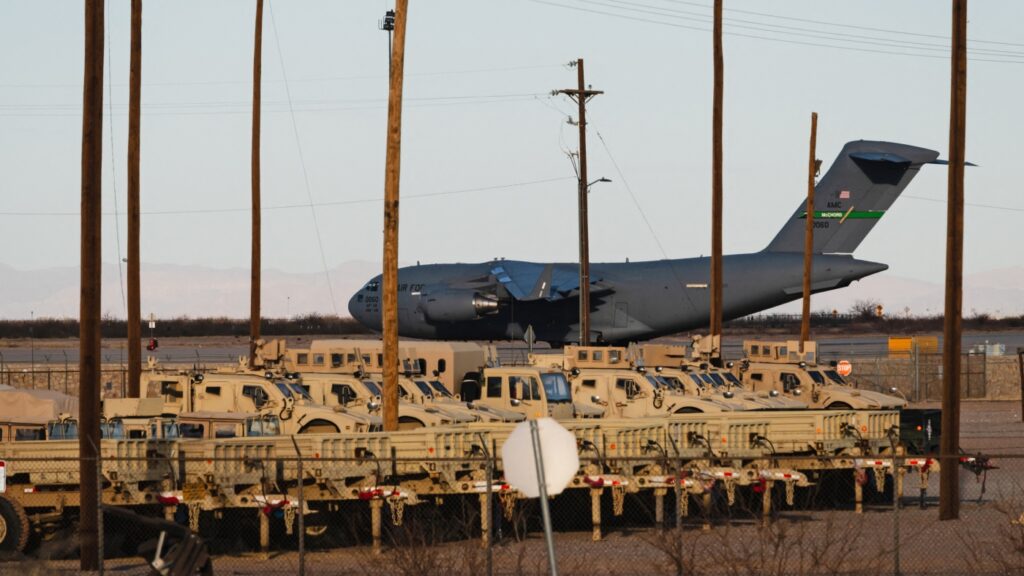
A United States Air Force Boeing C-17 used for deportation flights is pictured at Biggs Army Airfield in Fort Bliss, El Paso, Texas on February 13, 2025. Trump has been unhappy with the number of arrests so far and has directed federal immigration officials to meet higher detention quotas, the Washington Post reported. It said he was ordering ICE to raise the arrest numbers from a few hundred a day to at least 1,200 to 1,500, citing people with knowledge of internal briefings. (Photo by Justin Hamel / AFP) (Photo by JUSTIN HAMEL/AFP via Getty Images)
WASHINGTON, D.C. – The U.S. Supreme Court has temporarily upheld the deportation of individuals to third countries, allowing the practice to continue while legal challenges proceed.
Breaking: Supreme Court Intervenes in Deportation Case
The Supreme Court on Monday issued a stay on a lower court ruling that had permitted individuals facing deportation to challenge their orders if they were being sent to countries other than their own. The decision affects a group of men from various nations, including Myanmar, Laos, Vietnam, Cuba, and Mexico, who were on a flight initially bound for South Sudan but diverted to Djibouti to allow time for legal challenges.
Immediate Impact
The U.S. government has characterized the men as violent criminals, citing convictions for crimes such as murder, sexual assault, kidnapping, and robbery. Officials argue that these individuals do not deserve to remain in the United States.
“In matters of life and death, it is best to proceed with caution,” wrote the dissenting justices, highlighting the gravity of the situation.
Key Details Emerge
Judge Brian Murphy of the U.S. District Court for the District of Massachusetts had previously ruled that deportees must receive a “credible fear” interview in their native language and be given at least 15 days to contest their deportation. Monday’s Supreme Court order pauses this requirement, allowing the deportation process to continue without these steps for the time being.
By the Numbers
- Number of countries involved: 5 (Myanmar, Laos, Vietnam, Cuba, Mexico)
- Minimum days previously required to challenge deportation: 15
Expert Analysis
Immigration lawyers argue that even those convicted of crimes deserve a fair opportunity to contest deportation, especially if sent to countries with dangerous conditions. “Meaningful notice and an opportunity to be heard are fundamental rights,” they contend.
Regional Implications
Several migrants and U.S. detention officers are currently stationed at a U.S. military base in Djibouti, facing harsh conditions including high temperatures and proximity to hazardous “burn pits.”
Background Context
The strategy of deporting individuals to third countries is not new but has been emphasized under the Trump administration. The administration has focused on securing agreements with countries like China, Venezuela, and Cuba to accept deportees, aiming to expedite the removal process.
“The United States is facing a crisis of illegal immigration,” stated U.S. Solicitor General John Sauer, emphasizing the urgency of the situation.
What Comes Next
As the legal battle continues, the Supreme Court’s decision underscores the ongoing tension between immigration policy and judicial oversight. The case highlights the complex dynamics of international diplomacy and human rights considerations in the context of U.S. immigration enforcement.
The Supreme Court’s intervention signals a potential shift in how deportation cases might be handled in the future, with significant implications for both policy and the individuals affected.







